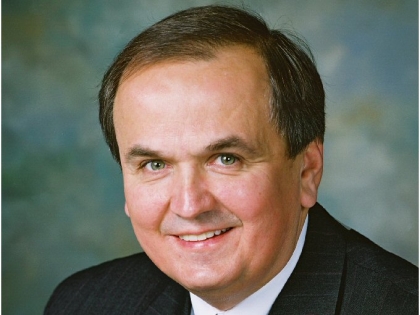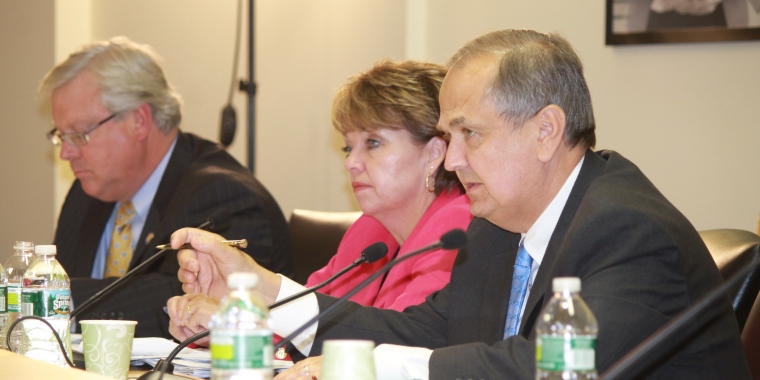
Senate Hearing sets a course for our Energy Future
George D. Maziarz
September 26, 2012
-
ISSUE:
- Energy

Somerset N.Y.- The Senate Energy and Telecommunications Committee heard testimony today from nine witnesses at a hearing meant to draw attention to the State’s energy generation and transmission needs. Aging infrastructure, state environmental policies and proposals to import foreign power are endangering jobs, threatening the tax base of local communities and undermining grid reliability.
“We are at a cross roads in terms of our energy generation and transmission future, and it is critical that we choose the right path,” said Senator George Maziarz (R-C, Newfane), Chairman of the Senate Energy and Telecommunications Committee. “We must adopt policies that incentivize older plants to repower and at the same time update our transmission infrastructure so that power rich areas upstate can supply power to consumers downstate. New York is fortunate to have the resources to be the master of its own energy future. We don’t need an extension cord from Canada what we need instead is an investment in New York jobs and support for our local communities.”
The committee heard from witnesses representing coal plants in Dunkirk and Somerset, Gavin Donohue, the CEO of Independent Power Producers of New York, Dan Engert Supervisor of the Town of Somerset, Ken Pokalsky representing the Business Council of New York State, Tom Rumsey and Rick Gonzalez from the New York Independent System Operator (NYISO) and Phil Wilcox and Michael Lutz representing the International Brotherhood of Electrical Workers (IBEW). Senators also heard from Paul Haering who represents NYTRANSCO, a coalition of public and private utility companies who have proposed a multi-billion dollar investment in the State’s transmission infrastructure and Donald Jessome representing Transmission Developers Inc. (TDI) that have proposed a Canadian power importation scheme.
Senator Maziarz laid out a clear plan aimed at building a sustainable and lasting energy generation and transmission system that will benefit all New Yorkers. This plan includes:
-Support for NYTRANSCO with its focus on in-state transmission and jobs and opposition to by-passing upstate generation and jobs through the risky importation called the Champlain-Hudson Power Express.
-Supporting generation jobs through allowing power plants to access Excelsior Jobs credits.
-Creating a “Clean Fuel Repowering Tax Credit” to allow any power plant that is willing to meet the stringent environmental standards established in the 2011 Power New York Act, to take at least a 12,5% as right tax credit on necessary improvements.
-Creating a “NY Clean Energy Innovation Fund” that will be paid for through the sale of NYPA peaker plants in New York City. This is expected to produce $300-$700 million and will be used to assist plants with repowering and communities with diminishing tax bases due to retiring plants.
-Allowing repowering projects that meet strict environmental standards to access low-interest debt financing though the state of New York.
-Leveling the playing field for all power producers by examining and analyzing the full gamut of environmental regulations and exemptions and their practical application including applying RGGI charges to any power imported from outside the state or country.
-Allow plants to committed to repowering, utilizing cleaner burning fuel technologies or adding elements of renewable energy to “bank” RGGI credits to assist in paying for these upgrades.
“From Long Island to Western New York and everywhere in-between communities are facing a major crisis caused by the potential loss of power generation, jobs and tax revenue,” said Maziarz. “My plan supports real transmission upgrades that will create 30,000 new jobs.” “It also provides real assistance to power plants in order to encourage the private investment necessary for them to be more environmentally friendly and more competitive. Working together we can maintain and create thousands of jobs in New York’s power sector, rather than turning to imported power that creates jobs in Canada. This is a critical choice and one that we simply must get right.”
Share this Article or Press Release
Newsroom
Go to NewsroomStrong West is growing
February 26, 2014


Senator Maziarz criticizes prison-to-college scheme
February 18, 2014
